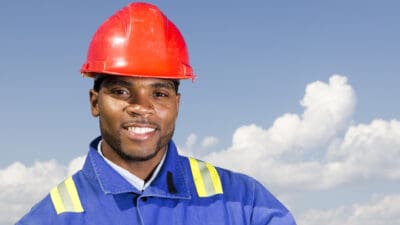A new report could increase the pressure investors put on the boards of S&P/ASX 200 Index (ASX: XJO) companies after it found the leaders of Australia's biggest carbon emitting entities aren't effectively managing climate risks.
It stated such failures leave companies – and their investors – exposed to unnecessary risk.
The Investor Group of Climate Change (IGCC) assessed the boards of 15 ASX 200 companies to create the report.
In doing so, it found directors often aren't skilled or experienced enough to lead a transition to net zero emissions. Further, companies were generally unclear on how they are addressing such gaps.
The report looked into 15 of Australia's largest emitters.
These included energy producers and retailers AGL Energy Limited (ASX: AGL), Origin Energy Ltd (ASX: ORG), Oil Search Ltd (ASX: OSH), Santos Ltd (ASX: STO), and Woodside Petroleum Limited (ASX: WPL).
Iron ore giants BHP Group Ltd (ASX: BHP) and Rio Tinto Limited (ASX: RIO) were also involved, as was BlueScope Steel Limited (ASX: BSL) and Incitec Pivot Ltd (ASX: IPL).
Qantas Airways Limited (ASX: QAN) and Woolworths Group Ltd (ASX: WOW) were also reviewed.
Let's take a closer look at the IGCC's findings.
ASX 200 boards fail when it comes to climate
The IGCC has found that the boards of ASX 200 companies generally don't appear to be properly managing climate risk.
The body states many boards still see climate action as a compliance or reputational matter, rather than a business risk.
Additionally, disclosure of both board members' climate skills and of a company's actions to address climate change are lacking. The IGCC states that weak disclosure practices suggest companies may not understand climate risks.
The report's lead researcher and author, Ian Woods stated:
[M]any companies identified the need for climate skills on their board, but few identified broader transition and disruption expertise, and none were comprehensively disclosing on board skill sets. Based on current disclosure it is hard for investors to form a view on how prepared these boards are for the transition.
Further, many ASX 200 boards place the responsibility of assessing climate risks onto a sustainability committee. However, such committees often only refer to greenhouse gas emissions and treat climate change as one of several environmental issues. They also tend to avoid covering technology developments and scope 3 emissions – those created in a company's value chain.
Finally, the report found that companies continually underestimate the speed of technology change and innovation when it comes to climate change.
IGCC director of corporate engagement, Laura Hillis commented:
We're not seeing the progress we need from companies to instil investor confidence…
Boards that fail to recognise the risk of climate change and their role in driving the company transition to a low carbon business, will leave the company and investors exposed to unacceptable financial, strategic and market risks. Not to mention they will miss out on the opportunities on the decarbonisation pathway, including jobs for regional communities.









